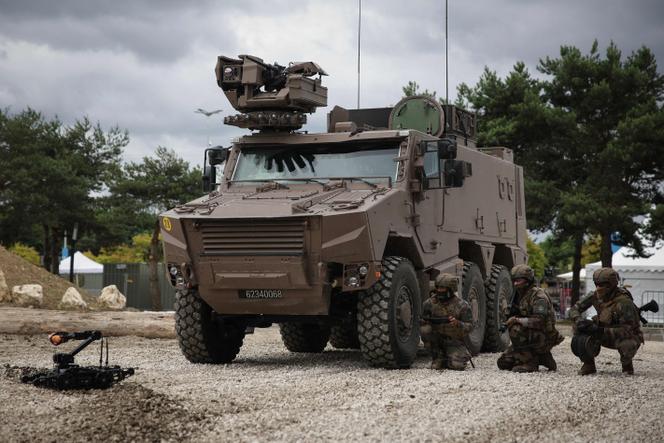


The cannon thunders in Ukraine, 2,500 kilometers from Paris, and its echoes make themselves heard all the way to Villepinte (Seine-Saint-Denis), where the world's largest land armaments show is being held from June 17 to 21. With over 2,000 exhibitors from 61 countries – Russia is obviously excluded, but also Israel for its war in Gaza – Eurosatory is the backroom for everything fueling the Russian-Ukrainian war, a high-intensity conflict the likes of which Europe hasn't seen since 1945: guns, drones, surface-to-air missiles, satellite arrays, cyberdefense... And all of the effects of this equipment has been boosted by artificial intelligence (AI).
Things have come a long way since the 2022 show, when, in the words of Eurosatory chief General Charles Beaudouin, participants were "stunned" by the Russian invasion of Ukraine. It was also the time when French President Emmanuel Macron called on the 4,000 companies in the French defense industrial and technological base to adopt a "war economy," producing "faster, stronger, at the lowest cost." They have been buoyed by the rise in military spending that began after Russia's annexation of Crimea in 2014 and has accelerated since 2022. Countries will have spent €2,056 billion on them by 2023, and the effort is to continue between now and the end of the decade.
There has also been a marked change in the equipment displayed. Equipment for structural programs (armored vehicles, etc...) accounts for the bulk of defense budgets, but "remotely-operated munitions" (drones, anti-drone systems, etc.) have never been so present in theaters of operation. AI has never helped the military as much in processing the mass of data arriving from the ever-increasing number of sensors on their equipment, in order to better hit enemy tanks, artillery batteries and command centers. Innovation cycles have never been so short, as illustrated by the race between the Russians and the Ukrainians. Never before too, have major corporations had such interest in the rising stars of tech, just like Safran, which is on the verge of acquiring AI satellite image reading specialist Preligens.
